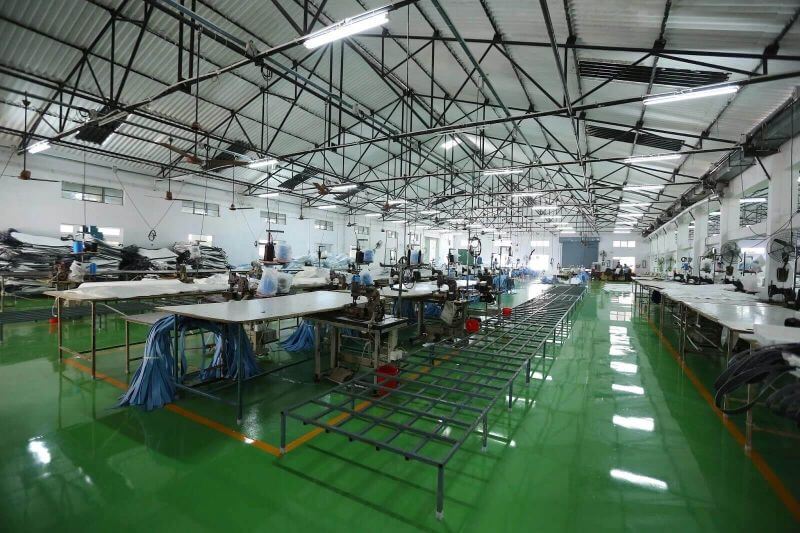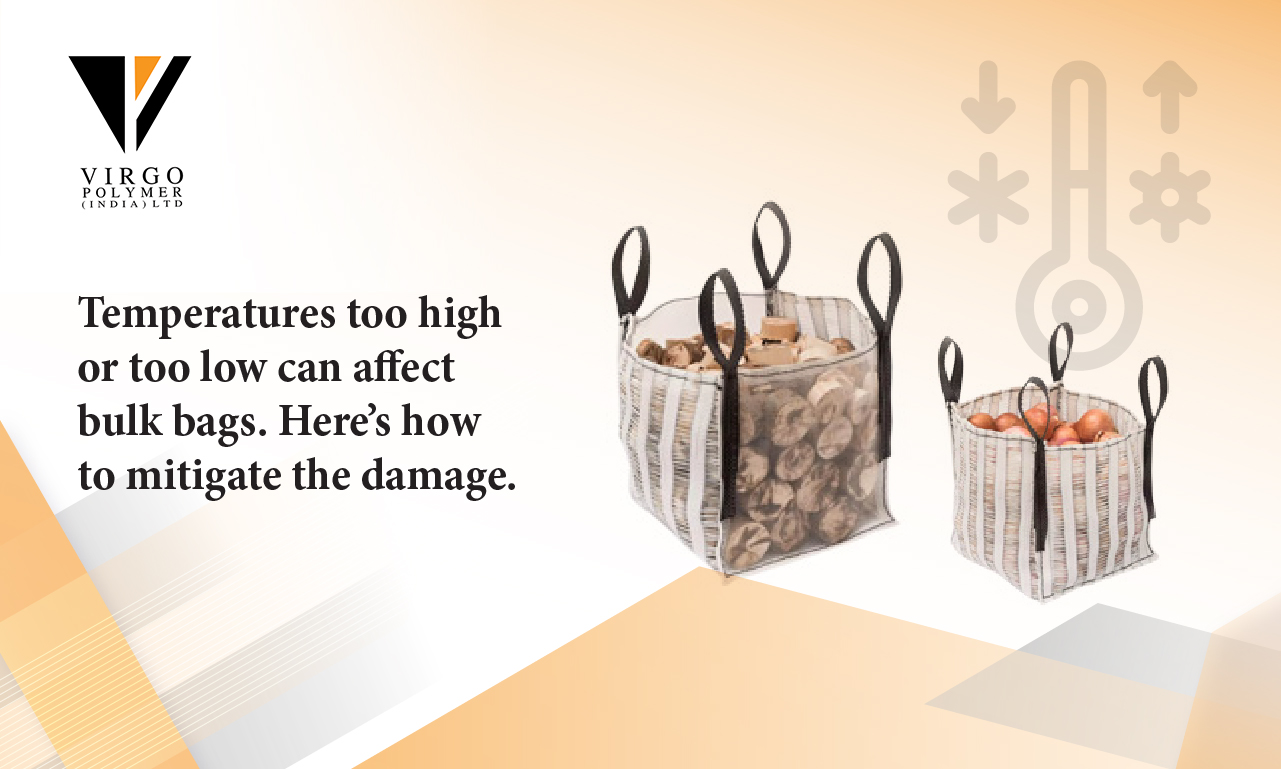



Flexible intermediate bulk containers (FIBCs) are every kind of ‘able’ -- durable, reusable, and recyclable.
Now, while FIBCs are meant to take a lot of wear and tear, they are susceptible to temperature, whether on the outside or the inside. But of course, there are ways to mitigate the effects.
Although the bags are designed with plastic material and polypropylene fabric woven together in individual strands to keep sensitive materials inside, high temperatures can affect the overall strength of FIBCs. Exposure to heat can loosen the molecules in the materials and result in the bag losing its tensile strength. The bag can begin degrading at temperatures above 21 degrees C. As the temperature rises further, the bag gets weaker and can break.
Low temperatures can affect bulk bags just as much as high temperatures. Cold temperatures and rain can cause the polypropylene material to deteriorate.
Materials inside can be protected by adding a polyethylene or liquid liner, as well as using bags with an external coating. They won’t provide full waterproofing or keep the materials warm, but they will help keep your stored products safe. Also, if you are storing the bags outside in winter conditions, they will also have to be covered with waterproof material.
Lining:
It is best to avoid filling polyethylene-lined bulk bags with products at temperatures above 75 degrees centigrade. Specialised high-temp polypropylene liners can safeguard bulk bags against higher levels of heat and protect bags up to around 140 degrees Celsius. However, these inner liners will not protect the exteriors of the bags from heat and UV rays. For that, FIBCs will have to be covered with protective material that won’t trap heat.
Waterproofing:
If you are storing the bags outside in winter conditions, they will also have to be covered with waterproof material. There are several methods. For instance, you can add fitted polyethylene liners to the interior of your bulk bags, which defend against moisture penetration.
Support:
Support bulk bags containing a product at temperatures higher than 35 degrees Celsius from the bottom at all times. Do not lift it using any means other than foundational support. If you are filling the bulk bag with a product that is over 95 degrees Celsius, test the bag after the heat exposure to make sure it meets safety standards.
Testing:
Always test bags that have been exposed to high temperatures. If you don’t, it could lead to a break and compromise the material it was carrying. This can be dangerous during transport.
It is best to store bulk bags in areas with cool, dry temperature conditions for the best results and to extend their longevity.
Virgo Polymers (India) Limited manufactures a wide variety of FIBC bags using high quality materials both for the bags as well as lining. Whether being filled with hot or cold material, these FIBC bags are built to withstand temperature and weather conditions. Contact us to know how to get more from your FIBC bag.
